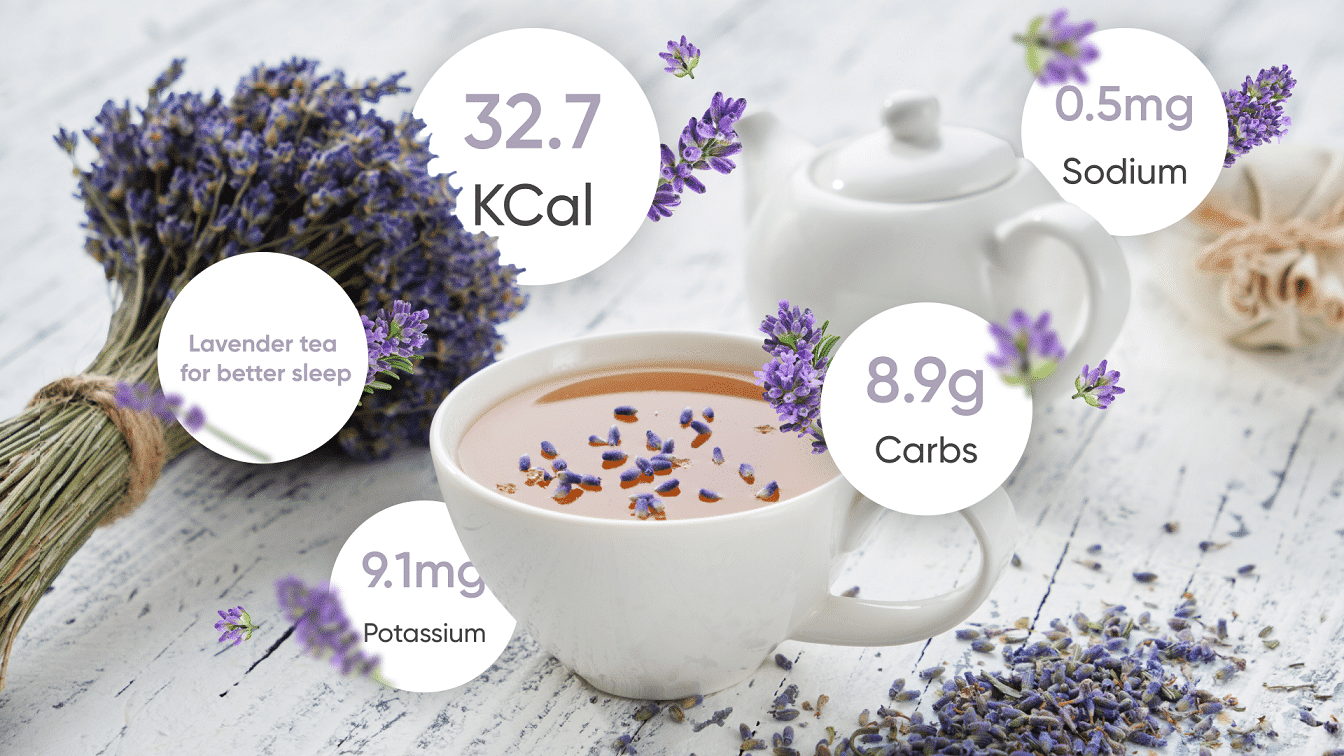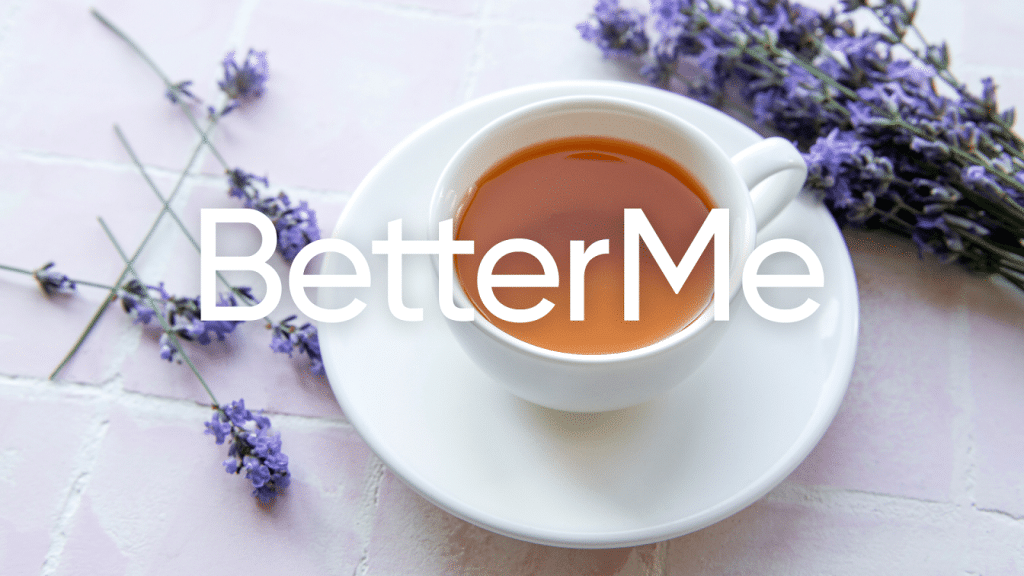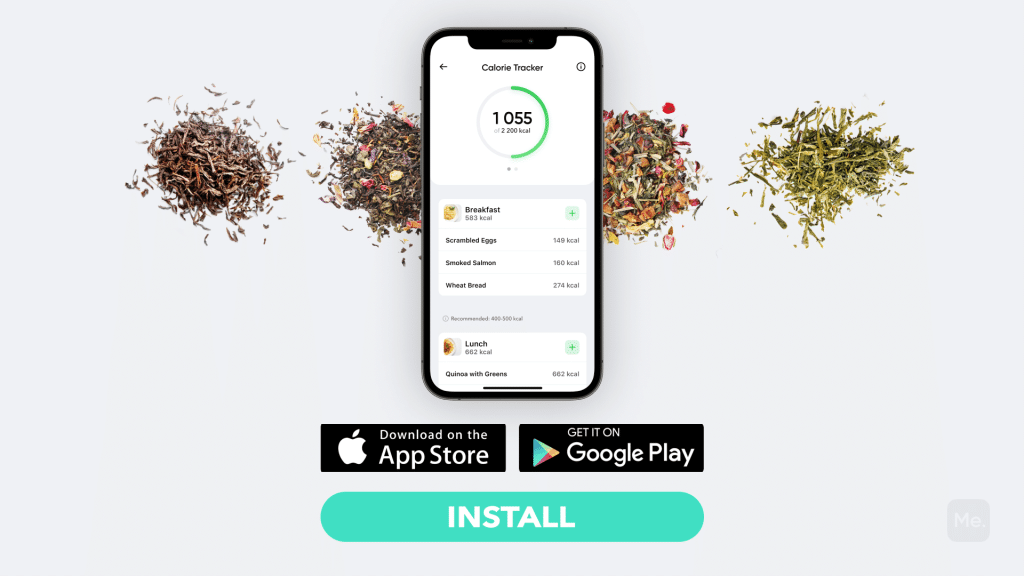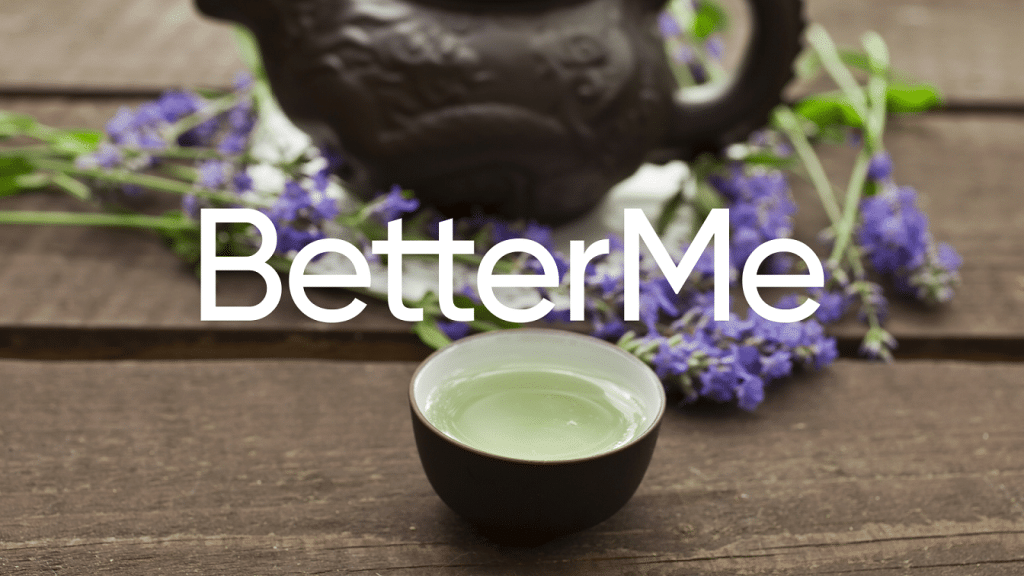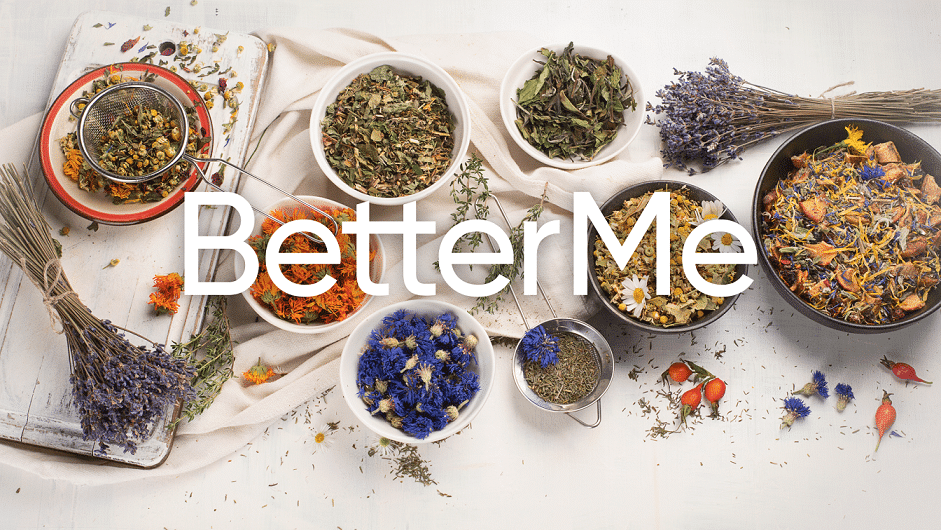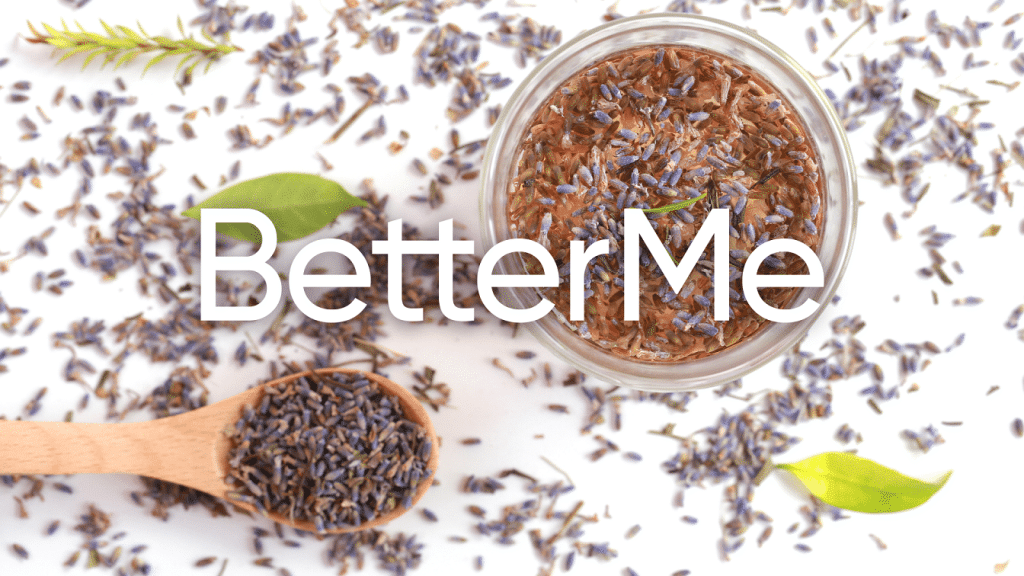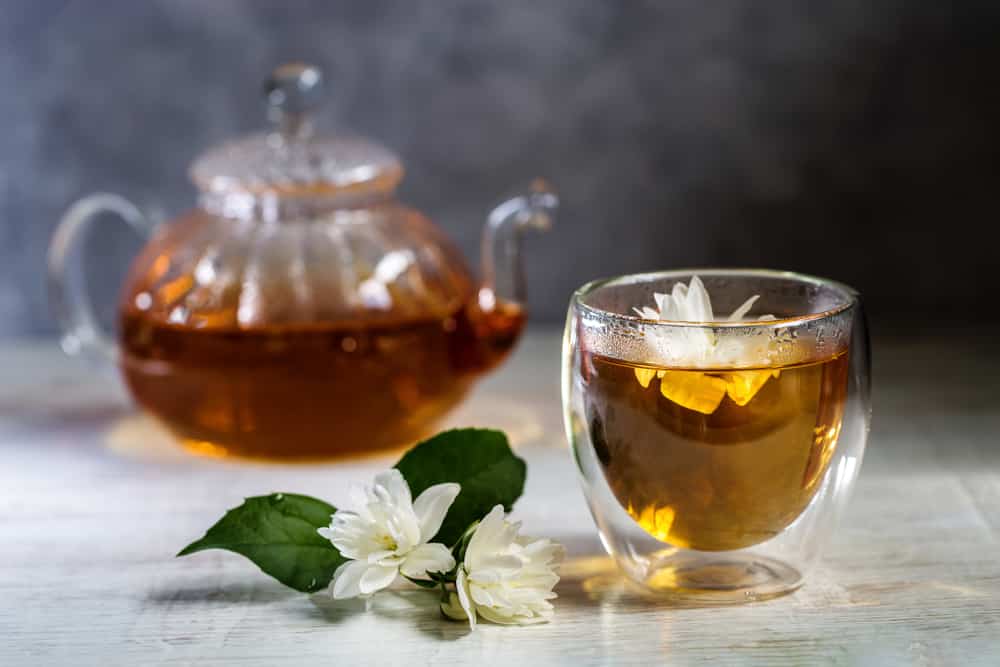What are the benefits of lavender chamomile tea, and is this combination safe for consumption? If you are a tea lover, then you certainly appreciate the increase in popularity of herbal tea blends that have taken over the market – whether in loose-leaf form or small compact tea bags, the combination of different herbs, spices, and even flowers make for an aromatic and delicious experience.
When it comes to chamomile and lavender tea herbal tea combination, some people might be a little wary of the blend, after all, while chamomile has been used for years in tea, lavender is mostly known for its use in aromatherapy or as an insect repellant, especially against mosquitoes and moths. In today’s article, we are going to explore the benefits of chamomile and lavender tea, lavender and chamomile tea side effects, if any, and much more.
What Is Lavender Chamomile Tea?
Unlike black, green, and oolong tea, which is made from the leaves, buds or stem of the tea plant (aka the Camellia sinensis plant), lavender, chamomile tea, and other herbal teas are made from other various plants and herbs.
According to Healthline and Britannica, chamomile tea comes from the daisy-like flowers of the Asteraceae plant family. The tea itself is specifically made from the dried flower heads of the German or common chamomile plant. This plant is native to Europe, Africa, and Asia– and is now also grown in North America (17).
On the other hand, lavender tea is made from the purple buds of the Lavandula angustifolia (aka English Lavender) plant. Like chamomile, while this herbal plant is now grown in North America and other parts of the world, it is native to northern Africa and the mountainous regions of the Mediterranean.
Lavender Chamomile Tea Health Benefits
Are chamomile and lavender tea good for you? If you were to pose this question to most tea and especially herbal tea lovers, the answer would most probably be a resounding “YES”. But, other than the aromatics and fancy-sounding concoction, what exactly is lavender chamomile tea good for?
Read More: Oolong Tea Facts, Health Benefits And Side Effects
Here are some scientifically-backed benefits of lavender chamomile tea:
Caffeine Free
In a world obsessed with coffee, taking pictures of coffee, and finding the best coffee drink at your local chain store, the thought of going without caffeine can seem daunting, if not impossible. What most of us are unaware of is that caffeine is genuinely not all that good for you, and going caffeine-free a few days a week can be beneficial to your health. Some reasons behind this include:
- Increases Anxiety. Caffeine in teas and coffee has psychostimulant effects, which trigger your body’s “fight or flight” hormones. These hormones are known to not only increase anxiety, but other side effects like nervousness, heart palpitations, and even panic attacks as well (7). Research has also shown that this ingredient worsens issues for people already living with mental issues, such as anxiety and stress, and may inadvertently lead to depression (36).
- Affects Your Sleep. Research has shown that taking caffeine any less than six hours before your bedtime can lead to issues with falling asleep, circadian sleep schedule reversals, rebound sleepiness, and much more. People who live caffeine-free, on the other hand, tend to sleep more blissfully and for longer (13, 14, 12)
- Affects The Shine And Health Of Your Teeth. A bright smile is one of the most attractive features in a person. Unfortunately, if you drink caffeinated drinks often, you are likely to end up with stained teeth. With an average pH value of 4.85 to 5.10, caffeine is considered acidic, and research has shown that acidic beverages not only stain teeth but can damage the enamel as well (6, 5).
- Leads To Imbalanced Hormones (Especially In Women). According to a study in The American Journal of Clinical Nutrition, having just two cups of coffee a day can throw your reproductive hormones out of whack. The study showed that in Asian women, caffeine intake greater than 200 mg per day was associated with higher estrogen levels, while in white/Caucasian women, the same was associated with lower estrogen levels (9). This ingredient has also been linked to the aggravation of vasomotor symptoms like hot flashes, vaginal dryness, night sweats, etc., among postmenopausal women (10).
- Chronic Headaches. According to a study in the American Academy of Neurology Journals, it increases the risk for chronic daily headache onset, regardless of headache type (11).
- Makes You Age Faster. According to a study published online in 2014 by the journal of Drug Design, Development and Therapy, caffeine inhibits collagen biosynthesis in human skin cells (25). Without proper collagen production, you are more likely to experience wrinkling and sagging of the skin, muscle weakness, aching joints, weak bones, brittle hair and nails, and lackluster skin.
Because chamomile lavender tea is not made from any part of the tea plant, taking it instead of common tea variants automatically saves you from having to deal with the above-mentioned potential side effects.
Whether you’re a workout beast or just a beginner making your first foray into the world of fitness and dieting – BetterMe has a lot to offer to both newbies and experts! Install the app and experience the versatility first-hand!
Helps You Sleep Faster And Better
The first and most obvious reason behind this is that this drink does not have caffeine, which, as mentioned above, can affect your sleep. Other than this fact, research has linked these two herbs to improved sleep quality.
Chamomile is widely regarded as a mild tranquilizer and sleep-inducer, and for years (and even traditionally), this herbal tea and essential oil have been used to help treat insomnia and to induce calming effects. According to test tube and animal research, scientists believe that these calming and sleep-inducing effects come from flavonoid apigenin that binds to benzodiazepine receptors in the brain (8, 24).
Another study published by the BMC Complementary Medicine and Therapies journal found that people who consumed 270 mg of chamomile extract twice daily for 28 days had 1/3 less nighttime awakening and fell asleep 15 minutes faster than those who did not consume the extract (32). They considered this a modest benefit, however, and most of their results did not reach statistical significance.
On the other hand, when it comes to lavender as a drink, there isn’t a lot of research in its relation to sleep. However, many studies have shown that lavender oil helps people sleep better. For example, a study in the Journal of Alternative and Complementary Medicine found that students who used a lavender oil-infused inhalation patch demonstrated better sleep quality than those who did not use a patch with lavender (18). Using this plant’s extract in aromatherapy has also been shown to help new mothers sleep better (28).
In light of this, having a hot cup of lavender chamomile tea might help you fall asleep faster and have a more restful sleep; the steam from the tea delivers the aromatherapy effects of the herbs, especially lavender.
Helps With Digestive And Gastrointestinal Issues
Having this herbal drink can be very beneficial, especially for people who suffer from digestive and other gastrointestinal problems. According to a review in the Journal of Phytomedicine, chamomile has been used traditionally for ages for digestive disorders and other gastrointestinal conditions like spasm or colic, upset stomach, flatulence (gas), ulcers, and gastrointestinal irritation (31).
As for lavender, Medical News Today states that as with chamomile, consuming lavender as a tea might help digestive issues such as vomiting, nausea, intestinal gas, upset stomach, and abdominal swelling.
Helps With Period/Menstrual Cramps
Any menstruating woman knows just how debilitating the pain of period cramps can be. If you are among the many women who suffer through pain from their period every month, then you may benefit from having some lavender chamomile tea around.
In one study published online in 2016, 200 students were divided into two groups. One group was asked to inhale lavender in the first three days of menstruation, 30 minutes in a day over two menstrual cycles. Meanwhile, the other group was given a placebo drink. At the end of the study, researchers found that the women who had been inhaling lavender reported significantly less pain severity two months after using this herb (34).
Concerning chamomile, several studies have shown that this herbal tea possesses antispasmodic properties, which can relieve the painful cramps associated with the menstrual periods. Its oil has also been proven to have the same antispasmodic and relaxing properties, which are useful in calming the symptoms associated with PMS (20).
Helps Relieve Anxiety And Depression
Anxiety and depression are the most commonly reported psychiatric conditions today. If you suffer from any or both of these conditions, this tea might be helpful. Chamomile has not just been used traditionally to help with anxiety, but it is also backed with scientific studies that have shown that this herb can help with the therapy of generalized anxiety disorder and depression due to its modest anxiolytic activity (3, 15).
Studies have also shown that lavender helps stimulate activity in certain areas of the brain and influence the transmission of impulses between brain cells in ways that boost mood and produce a calming effect (19, 27).
Read More: Are Roasted Almonds Healthy? The Tea On Raw Vs. Roasted Almonds
Chamomile Lavender Mint Tea Benefits
As seen above, the combination of chamomile and lavender in tea provides your body with some incredible health benefits. Choosing to add mint to the mixture will not only elevate the taste but will also come with several added health benefits.
Eases Gastrointestinal Disorders, Abdominal Pain, And Symptoms Of IBS
Irritable bowel syndrome (IBS) is a common lifelong condition that affects the digestive system causing symptoms like stomach cramps, bloating, diarrhea, and constipation. Depending on how severe the problem is, these symptoms can last anywhere between a few days, a week, to as long as several months at a time. Luckily, having some mint tea can help lessen these symptoms.
In 2014, a review of nine studies covering about 726 participants by the Journal of Clinical Gastroenterology revealed that the consumption helped reduce the severity of IBS symptoms and abdominal pain (30).
In 2016 the Digestive Diseases and Sciences journal published a controlled trial on the effects of a specially designed sustained-release peppermint oil on patients with IBS. The 72 participants were placed in two groups; one group took a placebo three times a day while the other group consumed peppermint oil three times a day too. At the end of four weeks, researchers found that peppermint oil helped reduce the Total IBS Symptom Score by up to 40 percent (2).
In children, research has found that this herb can help reduce the symptoms of common gastrointestinal disorders. A review of 14 trials with 1927 participants suffering from different acute and functional gastrointestinal disorders published in 2017 revealed that oil from this herb helps in decreasing the duration, frequency, and severity of pain in children suffering from undifferentiated functional abdominal pain (23).
Helps Relieve Migraines And Headaches
According to a study published by the German journal Der Nervenarzt, a 10% peppermint oil solution in ethanol rubbed onto the forehead had a similar effect as 1000 mg of acetaminophen (aka paracetamol) on tension headaches (1). This idea is echoed in a study on essential oils published in 1995 that stated that the menthol from this herb increases blood flow and provides a cooling sensation which can be beneficial for pain relief (21).
Relieves Sinuses
If you are always struggling with clogged sinuses due to flu, the common cold, or allergies, then having some mint tea can offer some relief, especially from the steam emanating from your cup. The menthol found in peppermint has been shown to help with unclogging the nasal passage (35).
Improves Energy Levels
Feeling sleepy or lethargic during the day? Having some chamomile lavender mint tea or any other kind of tea with mint could help boost your energy levels. A randomized controlled trial published in 2018 showed that taking peppermint oil capsules helped fight the mental fatigue that comes with extended cognitive tasks (37). A study published by the International Journal of Psychophysiology in 2005 suggested that inhaling peppermint oil may help reduce daytime sleepiness (32).
Dropping pounds by the dozens without putting yourself through the wringer is everyone’s weight loss pipe dream. But what if we told you that the BetterMe app can make that happen? Keep yourself in prime shape with our fat-blasting workouts, delicious budget-sparing recipes, and body-transforming challenges with our app!
Relieves Menstrual Cramps
A study in the Iranian Journal Nursing Midwifery Research showed that orally ingesting peppermint can reduce the intensity and duration of menstrual cramps (22). The women in the study who also experienced diarrhea and nausea during their period noticed some relief in this area.
Please note that mint can cause some side effects as peppermint oil when taken orally, such as heartburn, nausea, abdominal pain, and dry mouth. Also, while rare, mint has been known to cause some allergic reactions (29).
One final thing to note is that while most of these benefits are from studies done using peppermint oil and not leaves, you might still get some of the same benefits from using the leaves in your tea.
Side Effects Of Chamomile And Lavender Tea
When it comes to possible lavender and chamomile tea side effects, the most common side effect would be allergies. If you are allergic to lavender or chamomile plants, or any plants in either herb family, then you should stay away from this tea.
A chamomile allergy is especially serious and presents itself in the forming of hives, difficulty breathing, and/or swelling of your face, lips, tongue, or throat. Patients suffering from and taking medication for diseases like HIV, malaria, tuberculosis or asthma, cancer, diabetes, erectile dysfunction, heartburn or GERD, high blood pressure, heart condition, etc., are also warned to not take this herb or any herbal teas or supplements without first speaking to a medical doctor (16).
On the other hand, when ingested by some, lavender has been said to cause constipation, headache, and an increased appetite. You should avoid consuming lavender if you are allergic to it, and talk to your doctor if you are taking blood-thinning medication or drugs that lower cholesterol (26).
The Bottom Line
The benefits of lavender and chamomile tea clearly show us that this is a great herbal tea to have at hand. Unlike what most people believe, this tea is not just for relaxation as its benefits go beyond this simple use. With that being said, this tea should not be used as a replacement for any treatment prescribed by the doctor to help counter any illnesses or disorders mentioned throughout this article. Always talk to your doctor before adding any herbal teas or supplements to your diet, especially if you are on medication.
DISCLAIMER:
This article is intended for general informational purposes only and does not address individual circumstances. It is not a substitute for professional advice or help and should not be relied on to make decisions of any kind. A licensed physician should be consulted for diagnosis and treatment of any medical conditions. Any action you take upon the information presented in this article is strictly at your own risk and responsibility!
SOURCES:
- [Effectiveness of Oleum menthae piperitae and paracetamol in therapy of headache of the tension type] (1996, pubmed.ncbi.nlm.nih.gov)
- A Novel Delivery System of Peppermint Oil Is an Effective Therapy for Irritable Bowel Syndrome Symptoms (2016, pubmed.ncbi.nlm.nih.gov)
- A randomized, double-blind, placebo-controlled trial of oral Matricaria recutita (chamomile) extract therapy for generalized anxiety disorder (2009, pubmed.ncbi.nlm.nih.gov)
- A review of the bioactivity and potential health benefits of peppermint tea (Mentha piperita L.) (2006, pubmed.ncbi.nlm.nih.gov)
- Acidic beverages increase the risk of in vitro tooth erosion (2009, ncbi.nlm.nih.gov)
- Acidity and Antioxidant Activity of Cold Brew Coffee (2018, ncbi.nlm.nih.gov)
- An update on the mechanisms of the psychostimulant effects of caffeine (2007, onlinelibrary.wiley.com)
- Benzodiazepine-like compounds and GABA in flower heads of Matricaria chamomilla (1996, researchgate.net)
- Caffeinated beverage intake and reproductive hormones among premenopausal women in the BioCycle Study (2012, academic.oup.com)
- Caffeine and menopausal symptoms what is the association? (2015, journals.lww.com)
- Caffeine as a risk factor for chronic daily headache A population-based study (2004, n.neurology.org)
- Caffeine Consumption and Sleep Quality in Australian Adults (2016, ncbi.nlm.nih.gov)
- Caffeine Effects on Sleep Taken 0, 3, or 6 Hours before Going to Bed (2013, ncbi.nlm.nih.gov)
- Caffeine: Sleep and daytime sleepiness (2008, sciencedirect.com)
- Chamomile (Matricaria recutita) may provide antidepressant activity in anxious, depressed humans: an exploratory study (2012, pubmed.ncbi.nlm.nih.gov)
- Chamomile (n.d., drugs.com)
- Chamomile (n.d., sciencedirect.com)
- Effect of Inhaled Lavender and Sleep Hygiene on Self-Reported Sleep Issues: A Randomized Controlled Trial (2015, ncbi.nlm.nih.gov)
- Effects of Lavender Tea on Fatigue, Depression, and Maternal-Infant Attachment in Sleep-Disturbed Postnatal Women (2015, pubmed.ncbi.nlm.nih.gov)
- Efficacy of Chamomile in the Treatment of Premenstrual Syndrome: A Systematic Review (2019, ncbi.nlm.nih.gov)
- Essential plant oils and headache mechanisms (1995, pubmed.ncbi.nlm.nih.gov)
- Evaluation of mint efficacy regarding dysmenorrhea in comparison with mefenamic acid: A double blinded randomized crossover study (2016, pubmed.ncbi.nlm.nih.gov)
- Herbal Medicines for Gastrointestinal Disorders in Children and Adolescents: A Systematic Review (2017, pubmed.ncbi.nlm.nih.gov)
- Hypnotic activities of chamomile and passiflora extracts in sleep-disturbed rats (2005, pubmed.ncbi.nlm.nih.gov)
- Influence of caffeine and hyaluronic acid on collagen biosynthesis in human skin fibroblasts (2014, ncbi.nlm.nih.gov)
- Lavender (n.d., drugs.com)
- Lavender and the Nervous System (2013, hindawi.com)
- Lavender Fragrance Essential Oil and the Quality of Sleep in Postpartum Women (2015, ncbi.nlm.nih.gov)
- Peppermint Oil (2020, nccih.nih.gov)
- Peppermint oil for the treatment of irritable bowel syndrome: a systematic review and meta-analysis (2014, pubmed.ncbi.nlm.nih.gov)
- Pharmaceutical prerequisites for a multi-target therapy (2006, pubmed.ncbi.nlm.nih.gov)
- Preliminary examination of the efficacy and safety of a standardized chamomile extract for chronic primary insomnia: A randomized placebo-controlled pilot study (2011, ncbi.nlm.nih.gov)
- Preliminary investigation of the effect of peppermint oil on an objective measure of daytime sleepiness (2005, pubmed.ncbi.nlm.nih.gov)
- The Effect of Lavender Aromatherapy on the Pain Severity of Primary Dysmenorrhea: A Triple-blind Randomized Clinical Trial (2016, ncbi.nlm.nih.gov)
- The effects of menthol isomers on nasal sensation of airflow (1988, pubmed.ncbi.nlm.nih.gov)
- The Relationship of Caffeine Intake with Depression, Anxiety, Stress, and Sleep in Korean Adolescents (2016, ncbi.nlm.nih.gov)
- Volatile Terpenes and Brain Function: Investigation of the Cognitive and Mood Effects of Mentha × Piperita L. Essential Oil with In Vitro Properties Relevant to Central Nervous System Function (2018, pubmed.ncbi.nlm.nih.gov)
